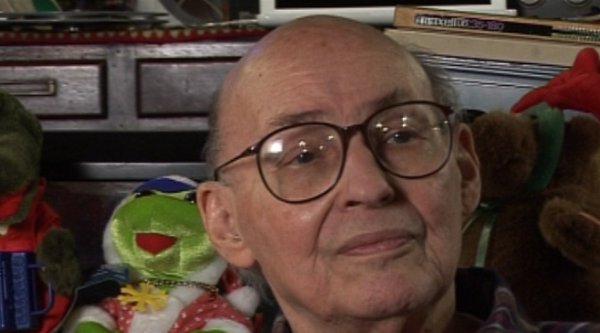NEXT STORY

Deconstructing consciousness into mechanistic processes
RELATED STORIES

NEXT STORY

Deconstructing consciousness into mechanistic processes
RELATED STORIES


|
Views | Duration | |
|---|---|---|---|
| 111. The philosophy of thinking in threes | 2 | 1633 | 03:28 |
| 112. Discussing ideas with Francis Crick | 1765 | 00:28 | |
| 113. Discussing consciousness in The Emotion Machine | 2 | 1466 | 01:45 |
| 114. Deconstructing consciousness into mechanistic processes | 1 | 1605 | 04:33 |
| 115. The idea of consciousness is at odds with evolution | 1 | 1440 | 02:04 |
| 116. The word 'consciousness' is just used to control people | 1492 | 02:13 | |
| 117. The fuzziness of qualia | 1315 | 03:51 | |
| 118. Accounting for qualia with complicated processes | 1214 | 03:09 | |
| 119. Evolution intervened between psychology and physics | 1187 | 03:07 | |
| 120. My work with Seymour Papert on neural networks | 1163 | 01:18 |


OK, in this book that I called The Emotion Machine – by mistake – I have a chapter on what’s called consciousness. And it seems to me that this is a very popular word and a very mysterious word. So many otherwise very smart people like to talk about the mystery of consciousness. What is this wonderful thing that we have and how could a machine have such a thing? Most people believe somehow it's... it couldn’t be artificially constructed because it’s so mysterious and so powerful. And I have three typical statements of... that people make... no one in particular. Consciousness is what give things... gives things meanings to us. Without it, we would not even know we had feelings. Consciousness makes us aware of ourselves; gives us our sense of identity and gives us the sense of being alive. Consciousness is what binds all our mental events together, unifies our past, present, and future into a continuous sense of experience. And I just have a little comment: Wow. Wouldn’t it be astonishing if any one power or force could endow us with all those abilities?
Marvin Minsky (1927-2016) was one of the pioneers of the field of Artificial Intelligence, founding the MIT AI lab in 1970. He also made many contributions to the fields of mathematics, cognitive psychology, robotics, optics and computational linguistics. Since the 1950s, he had been attempting to define and explain human cognition, the ideas of which can be found in his two books, The Emotion Machine and The Society of Mind. His many inventions include the first confocal scanning microscope, the first neural network simulator (SNARC) and the first LOGO 'turtle'.
Title: Discussing consciousness in "The Emotion Machine"
Listeners: Christopher Sykes
Christopher Sykes is a London-based television producer and director who has made a number of documentary films for BBC TV, Channel 4 and PBS.
Tags: The Emotion Machine
Duration: 1 minute, 46 seconds
Date story recorded: 29-31 Jan 2011
Date story went live: 13 May 2011